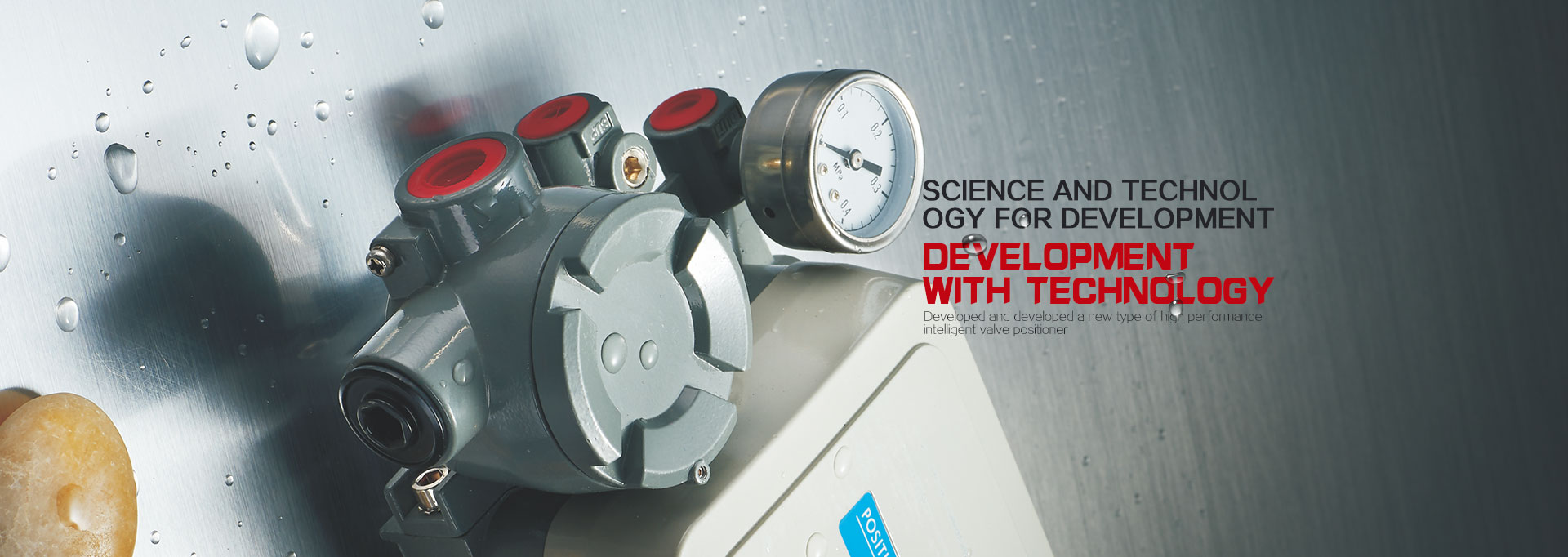Guide for selection of intelligent locator
In many control applications, the intelligent positioner is one of the most important accessories of the control valve. Especially for a particular application, if you want to choose the most suitable (or best) intelligent locator, what factors should be considered? Next, please follow us to understand it.
1. can intelligent locator achieve "split"? Is it easy and convenient to realize "divide the journey"?
The "dividing" function means that the intelligent locator only responds to a certain range of input signals (e.g. 4-12 mA or 0.02-0.06 MPaG). Therefore, if the "dividing" can be, according to actual needs, only one input signal can be used to control two or more control valves.
2. is it possible to complete zero and range adjustment without opening the lid?
It is worth noting that this arbitrary adjustment is sometimes prohibited to avoid incorrect (or illegal) operations.
What is the stability of 3. zero point and range?
If the zero point and range easily drift with temperature, vibration, time or input pressure changes, then the intelligent positioner needs to be constantly readjusted to ensure that the valve's stroke action is accurate.
4. what is the accuracy of intelligent locator?
Ideally, for an input signal, the inner parts of the control valve (including the spool, stem, seat, etc.) should be accurately positioned at the desired position each time, regardless of the direction of the stroke or how much load the inner parts of the control valve bear.
5. what is the requirement of intelligent locator for air quality?
Because only a few air supply devices can provide air that meets the ISA standard (ISA standard F7.3 for instrument air quality), the pneumatic (or electric-pneumatic) intelligent positioner must withstand a certain amount of dust, water vapor and oil if it is to withstand the test of the real environment.
Is the calibration of 6. zero and range interacted or independent?
If they interact, the adjustment of zeros and ranges will take more time, because the adjusters must adjust these two parameters repeatedly in order to gradually achieve accurate settings.
7. does intelligent locator have "bypass", allowing input signals to act directly on regulating valves?
This "bypass" can sometimes simplify or omit the verification of actuator assembly settings, such as "support assembly settings" and "spring seat load settings" - because in many cases, the pneumatic output signals of some pneumatic regulators match exactly the actuator's "support assembly settings". There is no need to set it up again. In fact, in this case, the intelligent locator can be completely omitted. Of course, if selected, the "bypass" of the intelligent positioner can also be used to make the pneumatic output signal of the pneumatic regulator act directly on the control valve.
In addition, with "bypass" sometimes allows on-line intelligent positioner for limited adjustment or maintenance, that is, the use of intelligent positioner "bypass" so that the control valve continues to work normally, without the need to force the control valve off-line.
8. is the function of intelligent locator fast?
The greater the air flow rate (the intelligent positioner constantly compares the input signal and valve position, and adjusts its own output according to the deviation between them. If the intelligent positioner responds quickly to this deviation, the greater the air flow per unit time, and the faster the regulation system responds to changes in settings and loads - meaning that the smaller the error (lag) of the system, the better the control quality.
9. what is the frequency characteristic (or frequency response) of the smart locator?
Generally speaking, the higher the frequency response, the better the control performance. However, it must be noted that the frequency characteristics should be determined by stable experimental methods rather than theoretical methods, and that in evaluating the frequency characteristics, the intelligent locator and actuator should be considered together.
10. what is the maximum rated gas pressure of the intelligent positioner?
For example, some intelligent positioners have a maximum rated supply pressure of 501b/in2 (i.e. 50psi, lpsi = 0.070kgf/cm2 6.865kPa). If the rated operating pressure of the actuator is higher than 501b/in2, the intelligent positioner becomes a constraint on the output thrust of the actuator.
11. when the combination of the control valve and the intelligent positioner, what is their positioning resolution?
This has a very obvious effect on the control quality of the regulating system, because the higher the resolution, the closer the position of the regulating valve is to the ideal value, and the fluctuation caused by the overshoot of the regulating valve can be restrained, thus ultimately limiting the periodic change of the regulated quantity.
12. is it possible to convert the positive and negative effects of intelligent positioners? Is conversion easy?
Sometimes this function is necessary. For example, if we want to change a "signal increase - intelligent switch" mode to "signal increase - intelligent open" mode, we can use the positive and negative reaction conversion function of intelligent positioner.
13. how complex is the internal operation and maintenance of the intelligent locator?
It is well known that the more parts, the more complex the internal operation structure, the more training for maintenance (repair) personnel, and the more spare parts in stock.
14. what is the steady state gas consumption of the smart positioner?
For some plant installations, this parameter is critical and may be a limiting factor.
15. other factors
Of course, other factors should be considered when evaluating and selecting smart locators. For example, the feedback link mechanism of the intelligent positioner should be able to reflect the position of the valve core truly; in addition, the intelligent positioner must be strong and durable, with the ability to resist environmental protection and corrosion, and easy to install and connect.







